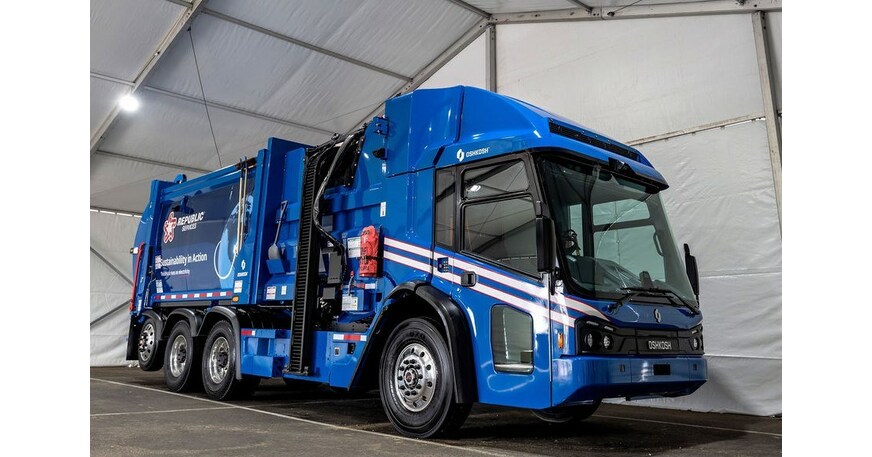As the world grapples with the challenges of climate change, environmental sustainability, and energy security, innovative companies like Republic Services are playing a vital role in addressing these issues. Republic Services, one of the largest waste management companies in the United States, has been at the forefront of energy recovery, leveraging cutting-edge technology to convert waste into a valuable resource. In this article, we will delve into the world of Republic Services’ energy recovery, exploring the benefits, processes, and impact of this pioneering approach.

Introduction to Energy Recovery
Energy recovery, also known as energy-from-waste (EfW), is the process of converting non-recyclable waste into energy, which can be used to generate electricity, heat, or fuel. This approach not only reduces greenhouse gas emissions and mitigates climate change but also provides a reliable source of renewable energy. Republic Services has been a pioneer in energy recovery, with a strong commitment to sustainability and environmental stewardship.
Republic Services’ Energy Recovery Process
Republic Services’ energy recovery process involves several stages:
- Waste Collection: Non-recyclable waste is collected from households, commercial establishments, and industrial facilities.
- Waste Sorting: The collected waste is sorted and processed to remove recyclable materials, such as paper, plastic, glass, and metal.
- Energy Generation: The non-recyclable waste is then fed into advanced energy-from-waste facilities, where it is burned at high temperatures, producing steam.
- Energy Conversion: The steam generated is used to power turbines, which produce electricity.
- Energy Distribution: The generated electricity is fed into the power grid, providing a reliable source of renewable energy to homes, businesses, and industries.
Benefits of Republic Services’ Energy Recovery
The energy recovery process employed by Republic Services offers numerous benefits, including:
- Reduced Greenhouse Gas Emissions: Energy recovery reduces the amount of waste sent to landfills, which are a significant source of methane, a potent greenhouse gas.
- Conservation of Natural Resources: By generating energy from waste, Republic Services reduces the need for fossil fuels, conserving natural resources and mitigating climate change.
- Renewable Energy Source: Energy recovery provides a reliable source of renewable energy, which can be used to power homes, businesses, and industries.
- Job Creation: The energy recovery process creates jobs in the waste management and energy sectors, contributing to local economic growth.
- Waste Reduction: Energy recovery reduces the amount of waste sent to landfills, minimizing the environmental impacts associated with waste disposal.
Technological Advancements
Republic Services has invested heavily in technological advancements to improve the efficiency and effectiveness of its energy recovery process. Some of the cutting-edge technologies employed include:
- Advanced Combustion Systems: Republic Services uses advanced combustion systems that maximize energy generation while minimizing emissions.
- Air Pollution Control Systems: The company employs state-of-the-art air pollution control systems to ensure that emissions are minimized and meet regulatory standards.
- Energy Storage Systems: Republic Services is exploring energy storage systems, such as batteries, to store excess energy generated during periods of low demand.
Environmental Impact
The environmental impact of Republic Services’ energy recovery process is significant. By reducing the amount of waste sent to landfills, the company minimizes the production of methane, a potent greenhouse gas. Additionally, the energy generated from waste reduces the need for fossil fuels, conserving natural resources and mitigating climate change. According to the Environmental Protection Agency (EPA), energy recovery can reduce greenhouse gas emissions by up to 2.5 metric tons per ton of waste processed.
FAQs
- What types of waste are accepted for energy recovery?
Republic Services accepts non-recyclable waste, including household waste, commercial waste, and industrial waste. - How much energy is generated from waste?
The amount of energy generated from waste depends on the type and quantity of waste processed. On average, 1 ton of waste can generate enough energy to power a home for 24 hours. - Is energy recovery a reliable source of energy?
Yes, energy recovery is a reliable source of energy, as it can operate continuously, providing a baseload power supply. - What are the environmental benefits of energy recovery?
Energy recovery reduces greenhouse gas emissions, conserves natural resources, and minimizes waste sent to landfills. - Can energy recovery replace traditional energy sources?
Energy recovery can supplement traditional energy sources, but it is not a replacement for them. However, it can contribute to a diversified energy mix and reduce dependence on fossil fuels.
Conclusion
Republic Services’ energy recovery process is a shining example of innovation and commitment to sustainability. By converting non-recyclable waste into a valuable resource, the company is reducing greenhouse gas emissions, conserving natural resources, and providing a reliable source of renewable energy. As the world continues to grapple with the challenges of climate change, environmental sustainability, and energy security, companies like Republic Services are leading the way, demonstrating that waste can be a valuable resource, rather than a liability. With ongoing technological advancements and investments in energy recovery, Republic Services is poised to play an increasingly important role in shaping a more sustainable future for generations to come.
Closure
Thus, we hope this article has provided valuable insights into Republic Services: A Leader in Energy Recovery. We thank you for taking the time to read this article. See you in our next article!